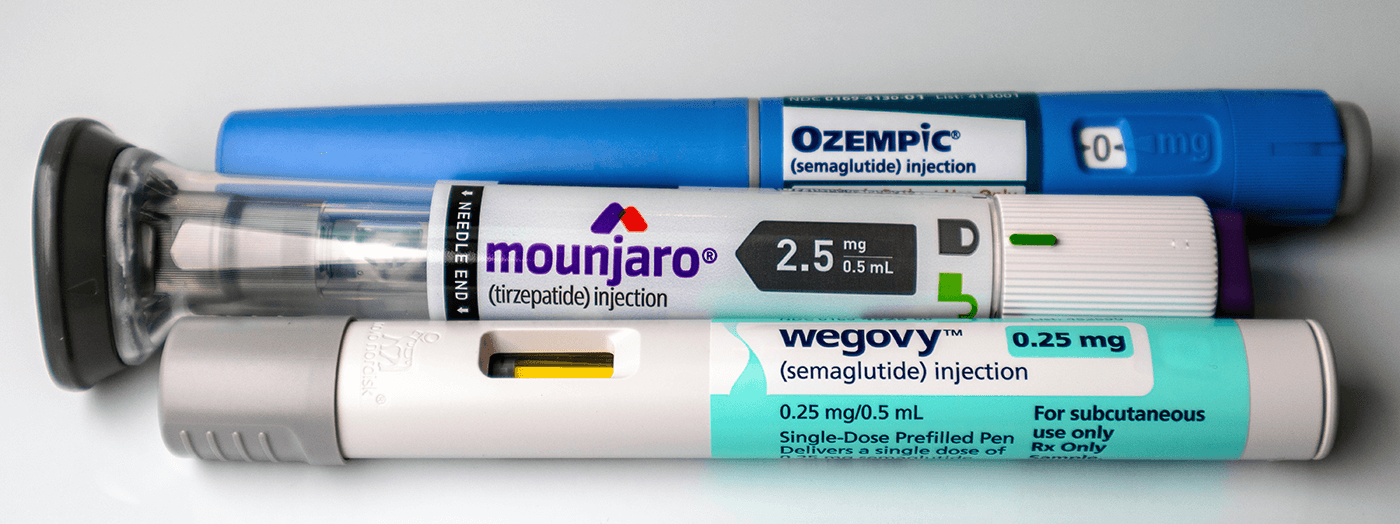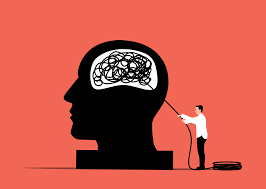Note: This article does not constitute medical advice. Please consult with your doctor before making any decisions regarding your health
As we all know, traumatic brain injury (TBI) is a serious medical condition that can have long-term effects. But did you realise it's also been linked to mental illness?
When someone suffers from severe trauma or an accident, they may be left with lasting physical injuries as well as emotional damage. The latter type often goes undiagnosed because people who are suffering from extreme stress tend not to seek help for their emotions — even if those emotions linger after the immediate danger has passed.
These problems persist when there isn't adequate treatment, which means sometimes symptoms go untreated until later in life.
A systematic review suggests that bipolar disorder affects about one percent of European adults. And according to the American Association of Retired Persons, 1 million Americans between 55 and 64 years old suffer head traumas each year. Unfortunately, many don't get diagnosed early enough so doctors aren't able to treat them properly.
And while there are plenty of other causes of mental health conditions such as depression, anxiety, and anger management issues, the link between TBI and mental illnesses remains controversial.
Some experts believe that mental disorders cause TBI, but others say TBI leads to mental illness. We'll discuss how both sides are correlated with each other.
While this article will focus primarily on post-trauma mental health concerns, some individuals do experience mental illness before they've had any kind of major trauma in their lives.
People with premonitions or phobias might develop irrational fears that lead them into dangerous situations, and people prone to panic attacks may find themselves experiencing heightened heart rates and sweating despite no apparent external stimuli.
If you're worried your experiences fall under either category, consult your doctor immediately.
How Trauma Affects the Mind
After receiving a blow to the head, our brain undergoes changes that affect its functioning. When neurons die off due to oxygen deprivation caused by swelling, scarring, and inflammation, we lose cognitive ability. Our grey matter shrinks, leading to loss of memory and motor skills.
Even though most of us only notice mild concussions, subdural hematomas, lacerations, and contusions during minor accidents, they still trigger neurodegenerative processes that could eventually result in death.
But what happens when our heads take a direct hit?
Dr David A. Hernell Jr., a former Navy Lieutenant Commander who suffered multiple concussions in his active duty days studied military personnel who were involved in helicopter crashes and found that 90 percent developed signs of chronic fatigue syndrome within three months of the incident. Those same men also exhibited higher incidences of mood disorders including obsessive-compulsive disorder, paranoia, schizophrenia, mania, and bipolar disorder.
In addition to neurologic effects, trauma has psychological consequences as well. Many studies show that victims of car accidents report increased levels of sadness and anxiety two weeks following their mishaps.
Other researchers state that post-concussive patients feel irritability, nausea, headaches, dizziness, and short-term amnesia more than twice as much compared to healthy controls.
Some scientists argue that mental illness makes up the bulk of trauma's long-term side effects, claiming that a person's predisposition toward mental illness determines whether he or she becomes disabled afterwards.
However, Dr Peter G. Charman argues just as strongly that trauma directly contributes to certain mental illnesses like Alzheimer's disease and dementia. He claims that neurological degeneration associated with these diseases results in behavioural shifts that manifest themselves in bizarre ways.
So, although neither theory fully explains why these conditions happen together, it appears that trauma plays a part in causing them in conjunction with underlying genetic factors.
Mental Health Effects of TBI
Let's start with a few common conditions that occur in tandem with TBI. Bipolar disorder is typically characterised by alternating periods of euphoria followed by deep despair. Most sufferers usually experience at least one manic episode every decade, and it tends to strike young adults.
Studies suggest that genetics play a role in triggering bipolar disorder, and exposure to environmental toxins like tobacco and cannabis increases the likelihood that a patient will develop the condition.
Major Depressive Disorders (MDDs) include unipolar and bipolar forms of depression. Unipolar depression is marked by low energy, hopelessness, and lack of motivation, whereas bipolar depression involves elevated mood swings and psychosis. MDDs can appear soon after receiving a concussion, but unlike bipolar disorder, they generally last less than six months.
Patients should see their physician right away if they exhibit suicidal thoughts or behaviour. Not surprisingly, antidepressants like Zoloft and Prozac carry warning labels advising users against taking them if they recently experienced a concussion.
Post-Traumatic Headache Syndrome (PTTHS) is another problem related to TBI. It develops four to 24 hours after a blow to the head, resulting in constant pain at varying degrees depending on severity. PTTHS doesn't require any further diagnosis unless it persists past eight weeks.
Pain medications and muscle relaxants can relieve headache sensations, but steroid injections and Botox treatments can increase sensitivity to light, sound, and pressure.
Because TBI itself rarely triggers headaches, PTTHS seems to be the culprit. Researchers suspect that PTTHS may be triggered by inflammatory reactions or structural abnormalities involving cranial nerves.
Finally, it's important to note that psychiatric diagnoses can coexist with TBI without affecting recovery time. Although depression and anxiety exist along a continuum, they differ significantly in terms of severity. Severe depression can interfere with sleep, eating, work performance, and relationships, whereas milder forms may barely impact daily activities.
Likewise, generalised anxiety disorder includes a variety of symptoms ranging from hypervigilance to avoidance behaviours. Anxiety disorders are thought to account for 20 percent of TBI patients' visits to outpatient clinics. Therefore, psychiatrists recommend monitoring symptoms closely rather than simply labelling them "anxiety." They should determine specific patterns and trends in order to provide proper care.
So far, we've looked mostly at negative outcomes brought on by TBI. What about positive ones? Let’s review the other side of the story.
One interesting phenomenon known as psychogenic nonepileptic seizures (PNES) occurs after a seizure event. Typically, PNES arise 12 to 48 hours after the initial attack. The patient exhibits facial grimacing, eye-rolling, arms flailing, tongue clenching, moaning, and screaming accompanied by rapid blinking eyes.
Sometimes, patients become aware of these episodes shortly afterwards, but this varies widely. Doctors attribute the sudden outbursts of emotion to psychological distress, fear, or confusion. Diagnosis requires ruling out epilepsy first, and tests vary based upon individual needs.
Anticonvulsant therapy relieves symptoms quickly, but patients must remain diligent in practising relaxation techniques to prevent future occurrences.
Does This Mean That All Cases Of Mental Illness Are Caused By TBI?
Of course not! There are dozens of instances where mental illness exists independently of TBI. Major Depression Disorder is perhaps the best example here. It's estimated that roughly 7.8 percent of adult Americans live with the condition, making it the fourth highest contributor to disability worldwide. Furthermore, approximately 15 percent of depressed patients receive a formal clinical diagnosis of bipolar disorder.
The key phrase here is formal diagnosis. Like any form of mental illness, bipolar disorder cannot always be attributed solely to trauma. Some researchers claim that bipolar disorder actually runs in families, meaning that genetic inheritance accounts for 80 percent of risk factors.
Others point to environmental influences like substance use, diet, exercise habits and social pressures. Regardless, it's clear that TBI does contribute to the development of these conditions.
Another factor worth considering is the nature of the relationship between brain and mind. Is it possible that some types of trauma cause mental illness better than others? Maybe blunt force trauma inflicts greater harm to the body than penetrating wounds, for instance, while subtle events like verbal insults leave a little effect on the psyche.
Or maybe the reverse is true -- simple assaults cause relatively little permanent damage to the brain, yet repeated incidents inflict increasing amounts of wear and tear. Science hasn't reached firm conclusions regarding this issue, yet it's certainly something to keep in mind.
For now, it's safe to assume that mental illness and TBI tend to cluster together, especially among younger populations. As mentioned earlier, children who sustain concussions seem to face longer odds of developing attention deficit hyperactivity disorder (ADHD). Adults who previously endured sports-related concussions are also more likely to experience late-onset depression, suicide attempts, violence and homicide.
Yet, the exact opposite trend exists with regard to older folks. Elderly patients who suffer from dementia tend to avoid seeking medical guidance as seen in the stats.




